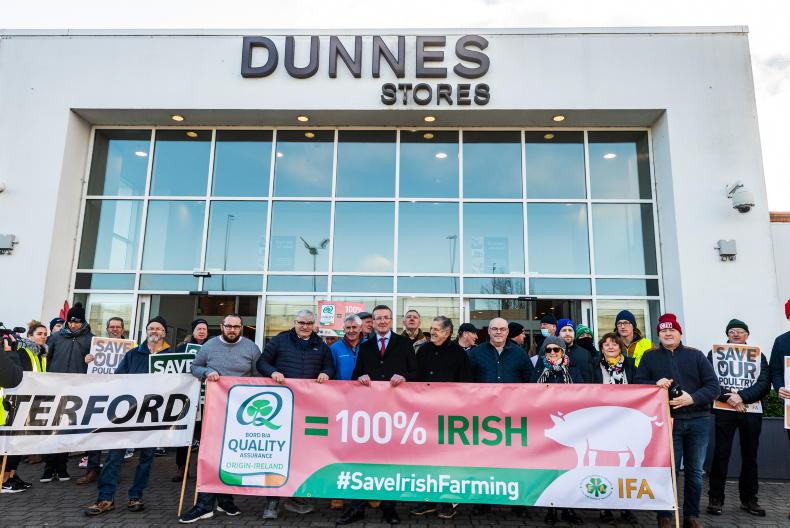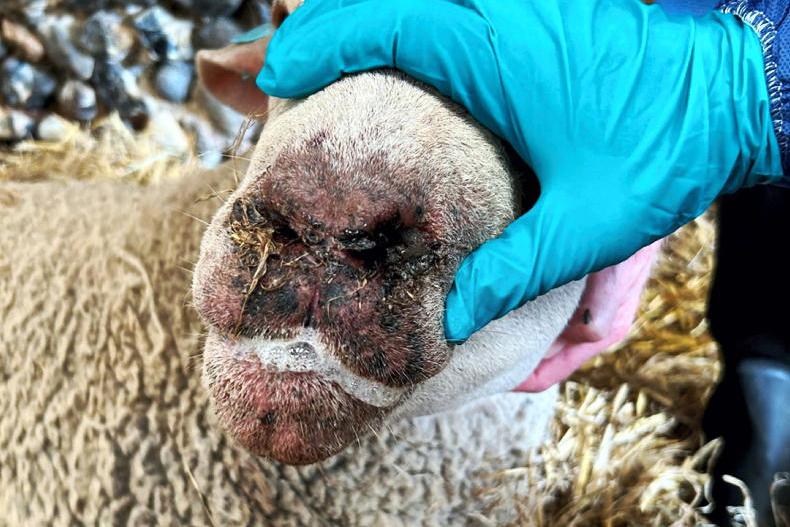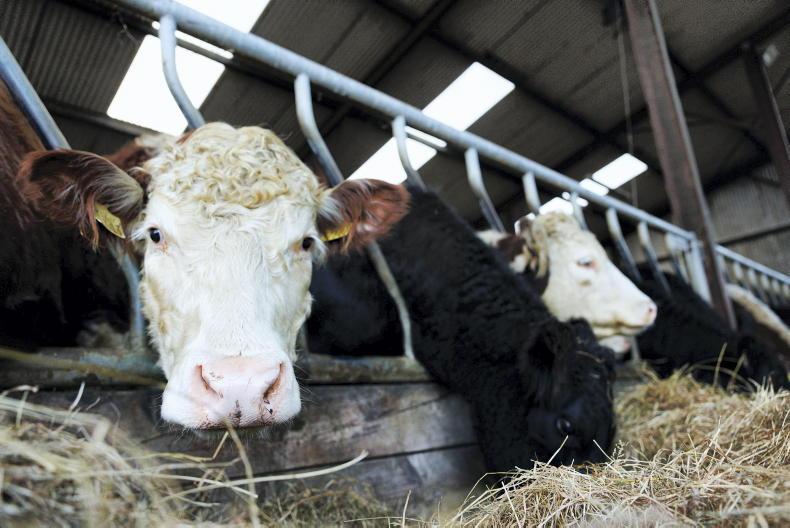Farmers are underwhelmed by the publication of Government legislation to establish an Office for Fairness and Transparency (OFT) in the food chain instead of establishing an industry ombudsman.
The office will be responsible for ensuring compliance with EU Unfair Trading Practices (UTP) legislation, which comes into effect on 28 April, having had a year lead in to allow businesses and customers adapt to the rules.
The UTP is a series of 10 forbidden practices that apply beyond the factory gate and are designed primarily to prevent large buyers like supermarket groups or burger chains bullying small suppliers with unfair terms in areas like credit terms, returns policy, managing customer complaints and unilateral contract changes.

UTP legislation is of more benefit to small suppliers beyond the farm gate than it is to farmers.
It also puts in place rules for what are described as ‘grey practices’ where suppliers have to make payments towards consumer-facing product promotion and marketing, referred to as ‘hello money’ in the trade.
Structure and finance
The legislation won’t be in place to establish the OFT before the UTP legislation kicks in on 28 April, so Minister McConalogue will have to appoint an interim office.
A chief executive will be appointed along with additional staff
When established, the office will have a chair and five board members, two of which will be farmers, that can serve two five-year terms.
A chief executive will be appointed along with additional staff to enable the functioning of the office. No budget has been provided for in the legislation, though provision has been made for the creation of a levy, payable by the processing industry.
This, in itself, is an issue for farmers, as having the office funded by those its purpose is to investigate, creates at least an impression of an interdependency between the investigator and investigated.
The OFT will be charged with “promoting fairness and transparency in the agricultural and food supply chain, in particular for farmers, fishers and small businesses” and will also “make available analysis of price and market data in the supply chain.”
While these may be worthy ambitions, they are an extremely soft target for a new organisation that risks becoming another quango.
Investigation powers
The OFT will, however, have teeth when it comes to investigations.
The legislation provides for the organisation either initiating an investigation itself or on the basis of a complaint made by a supplier, a producer organisation on behalf of members or other organisations that have a legitimate interest in representing suppliers.
These are not unreasonable, but it will be the willingness and ability of the OFT to conduct investigations that will make or break it
There are terms and conditions around the complaint being made in good faith – that it isn’t trivial or that it has happened too long ago for investigation.
These are not unreasonable, but it will be the willingness and ability of the OFT to conduct investigations that will make or break it.
The Competition and Consumer Protection Commission is long established with full investigative powers, but farmers have found it unwilling to intervene in supply chain issues beyond issuing a warning about not engaging in price fixing to farm and industry organisations taking part in a beef forum.
The OFT will also have enforcement powers ranging from a dispute resolution mechanism to issuing a compliance notice, fixed penalties and formal prosecutions, with potential for fines up to €500,000 or up to three years in prison.
It would be easy to dismiss the OFT as too little, too late. UTP legislation is EU-based and has to be enforced as a minimum by member states and is business-to-business facing.
Farmers have been looking for a regulator that can tackle the power imbalance between large processors and a multitude of small independent farmer suppliers.
The legislation is another missed opportunity to compel the processing industry to publish stocks and wholesale prices in a timely manner, as is done in the US.
This brings the ultimate level of transparency on where the value lies in the food chain, and judging by recent results from the US, hasn’t done factory profits any harm either.
It will have a range of powers available
Despite the misgivings, the OFT deserves an opportunity to prove its worth to Irish farmers. It will have a range of powers available, but will require a dynamic and committed chair and board to make full use of these to initiate and respond to requests for investigations. Minister McConalogue also needs to look at a funding model that is removed from the industry and have a full review of its effectiveness and continued existence after five years. Let it be judged on results.
Farmers are underwhelmed by the publication of Government legislation to establish an Office for Fairness and Transparency (OFT) in the food chain instead of establishing an industry ombudsman.
The office will be responsible for ensuring compliance with EU Unfair Trading Practices (UTP) legislation, which comes into effect on 28 April, having had a year lead in to allow businesses and customers adapt to the rules.
The UTP is a series of 10 forbidden practices that apply beyond the factory gate and are designed primarily to prevent large buyers like supermarket groups or burger chains bullying small suppliers with unfair terms in areas like credit terms, returns policy, managing customer complaints and unilateral contract changes.

UTP legislation is of more benefit to small suppliers beyond the farm gate than it is to farmers.
It also puts in place rules for what are described as ‘grey practices’ where suppliers have to make payments towards consumer-facing product promotion and marketing, referred to as ‘hello money’ in the trade.
Structure and finance
The legislation won’t be in place to establish the OFT before the UTP legislation kicks in on 28 April, so Minister McConalogue will have to appoint an interim office.
A chief executive will be appointed along with additional staff
When established, the office will have a chair and five board members, two of which will be farmers, that can serve two five-year terms.
A chief executive will be appointed along with additional staff to enable the functioning of the office. No budget has been provided for in the legislation, though provision has been made for the creation of a levy, payable by the processing industry.
This, in itself, is an issue for farmers, as having the office funded by those its purpose is to investigate, creates at least an impression of an interdependency between the investigator and investigated.
The OFT will be charged with “promoting fairness and transparency in the agricultural and food supply chain, in particular for farmers, fishers and small businesses” and will also “make available analysis of price and market data in the supply chain.”
While these may be worthy ambitions, they are an extremely soft target for a new organisation that risks becoming another quango.
Investigation powers
The OFT will, however, have teeth when it comes to investigations.
The legislation provides for the organisation either initiating an investigation itself or on the basis of a complaint made by a supplier, a producer organisation on behalf of members or other organisations that have a legitimate interest in representing suppliers.
These are not unreasonable, but it will be the willingness and ability of the OFT to conduct investigations that will make or break it
There are terms and conditions around the complaint being made in good faith – that it isn’t trivial or that it has happened too long ago for investigation.
These are not unreasonable, but it will be the willingness and ability of the OFT to conduct investigations that will make or break it.
The Competition and Consumer Protection Commission is long established with full investigative powers, but farmers have found it unwilling to intervene in supply chain issues beyond issuing a warning about not engaging in price fixing to farm and industry organisations taking part in a beef forum.
The OFT will also have enforcement powers ranging from a dispute resolution mechanism to issuing a compliance notice, fixed penalties and formal prosecutions, with potential for fines up to €500,000 or up to three years in prison.
It would be easy to dismiss the OFT as too little, too late. UTP legislation is EU-based and has to be enforced as a minimum by member states and is business-to-business facing.
Farmers have been looking for a regulator that can tackle the power imbalance between large processors and a multitude of small independent farmer suppliers.
The legislation is another missed opportunity to compel the processing industry to publish stocks and wholesale prices in a timely manner, as is done in the US.
This brings the ultimate level of transparency on where the value lies in the food chain, and judging by recent results from the US, hasn’t done factory profits any harm either.
It will have a range of powers available
Despite the misgivings, the OFT deserves an opportunity to prove its worth to Irish farmers. It will have a range of powers available, but will require a dynamic and committed chair and board to make full use of these to initiate and respond to requests for investigations. Minister McConalogue also needs to look at a funding model that is removed from the industry and have a full review of its effectiveness and continued existence after five years. Let it be judged on results.











SHARING OPTIONS